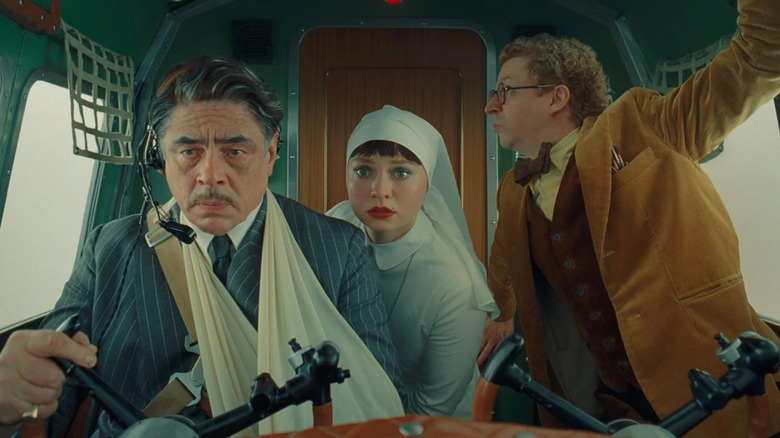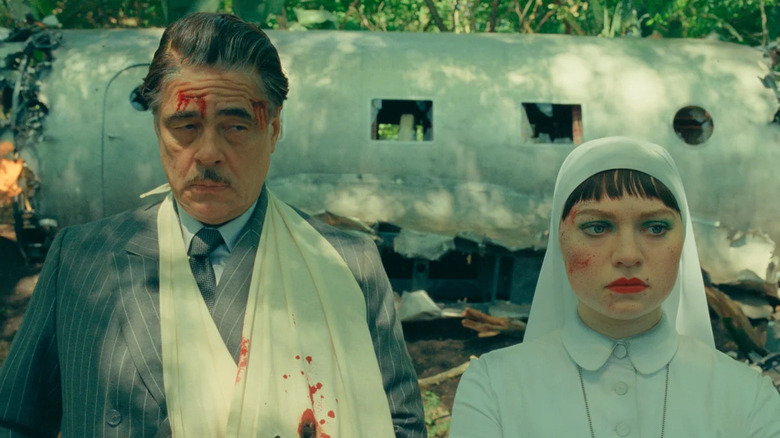Included in this article Mild spoilers For the “Phoenician Scheme.”
Since the collapse of the Hayes Code, violence has become the most common (and commonly accepted) violation of American films. If sexual content is still constantly avoided or reduced (often for good and bad reasons), the average audience is trained to avoid a lot of blood being shed and blowing their eyes. Despite the general appearance of violence in films, most films have a rationale for their inclusion. They use violence as an illusory element, highlight its effect to raise dramatic interests, or fearsome things.
However, while many films draw particular attention to their violent side, there are relatively few who can maintain a consistent level of shock to their violence. One filmmaker who can claim the ability to do this is Wes Anderson of all people. On paper, it appears that the violence in Anderson’s film is shocking. That’s considering his reputation as an arthouse filmmaker who is more interested in intelligence and wit than inexpensive thrills. Anderson’s early films actually seemed to be based on their violence – he certainly didn’t surpass the potential of a slapstick comedy, but the most upsetting moments of violence, such as the self-harm of “Royal Tenenbaum” felt appropriately offensive. It felt like Anderson had learned how to use violence as both a dramatic element and a punchline, up to the “Grand Budapest Hotel,” where Deputy Vilmos Kovacs (Jeff Goldblum) cut off his finger at the door where he was slammed.
Though the moments of violence in Anderson’s films are often extreme, they are also cleverly executed and maintain a portion and parcel of the director’s closely controlled aesthetic. Thus Anderson’s violence captures something completely about it, mostly by filmmakers. “The Phoenician Scheme” is Anderson’s most violent film to date and it definitely works when you consider the overall tone of the film and the way violence is used to contribute to the plight of the protagonist.
The violence in the “Phoenician Scheme” emphasizes the comic-style light-like form of its protagonist.
While Anderson has used moments of violence throughout the last few films, like a bit of condiment, “The Phoenician Scheme” shows that it becomes a very spicy movie for just a few seconds of runtime. During the fateful flight of industrialist Zsa-Zsa Korda (Benicio Del Toro) on a civilian plane, an attempt is made to assassinate Korda’s life. Korda survives, but his entourage is not. The man is magnificently blown away by the blacksmith, allowing the plane to drill holes in the fuselage.
This is Anderson’s way of setting the film’s table, not just its plot (reminiscent of stereotypical 1950s spy adventure films), but its unique tone. Anderson makes the violence both shocking and cartoonish, in connection with Korda not being blamed for surviving (and surviving) many attempts in his life, bringing about overall absurdity. In other words, films like Korda honestly see violence as a dangerous and annoying blur.
The approach to violence in film is nothing new to Anderson in terms of its effectiveness. His films will continuously handle high stakes events and situations with deadpan separation. For the best recent examples, look for more than an extraterrestrial encounter in the “Asteroid City.” The difference is that the violence in the “Phoenician Scheme” does not appear only at climaxes or at specific moments, but is passed through the entire film. There’s something about that going back to the early Jim Henson Shorts and Chuck Jones comics. The violence in these works is equally brutal and strange. Ultimately, the ever-present violence in the film helps to highlight not only Korda’s light-like form, but his journey as a character.
At the start of the film, death has no meaning to him, as his life is meaningless. It is the discovery of the value of life through Liesl (Mia Threapleton), an estranged daughter who allows Korda to try to improve herself. Korda’s spiritual and moral awakening does not reduce the film’s violence, but it makes it awfully fun. His climactic battle with his nemesis, Uncle Nuval (Benedict Cumberbatch), could be the most elaborate physical battle Anderson has ever performed, which is like “John Wick” and becomes like Mary Melody.
Use violence as a comedy counterpoint against film subtext
Just as Anderson undercuts high stakes drama with deadpan humor and non-anterior, his use of violence in the “Phoenician Scheme” contrasts and deepens the very kind story of Korda reconnecting and learning to oppose. Korda is a grumpy, pointy, obsessed business-oriented man, and the violence he is overwhelmed and surrounded by is both a by-product and cause of his personality. In his world, hand-rena bullets are merely souvenirs and are offered to business partners like chocolate. Using a respectable liethle, Anderson steadily peels off this hardened appearance, revealing the kindness within a man he himself had previously not noticed. It’s a previously seen character arc and archetype, an enhanced violence man with a terrible middle — but Anderson comes to it in his own unique and distorted way.
One additional aspect of the film’s use of violence is how it provides a comedic counterpoint to Korda’s business deal, and his negotiations are literally full of life or death interests. It’s interesting to interpret Korda and his efforts. You are about to travel through Phoenicia lands or otherwise cajole investor compatriots. Anderson doesn’t directly compare Korda and himself as a filmmaker, but the subtext exists for those who want to get a kick from it. Of course, this interpretation serves as a counterpoint to its own comedy. This involves Anason Alter’s ego as Corda taking bullets for investors and handing them a hand-rena bullet.
Ultimately, “The Phoenician Plan” proves that Anderson is currently a firm grasp of using violence at one time, both for dramatic and comedic purposes. There is certainly edgeness in graphic violence in cinemas every time it is used, but Anderson’s bloody mayhem has a big appeal. Filmmakers have a distinctly kind heart, as shown by the frequency of oral apologizing for on-screen violence. While it’s doubtful to watch a version of Wes Anderson’s slashing film, “The Phoenician Scheme” shows that it’s a bit unlikely now, unlike when the “Saturday Night Live” sketch was made a few years ago.







